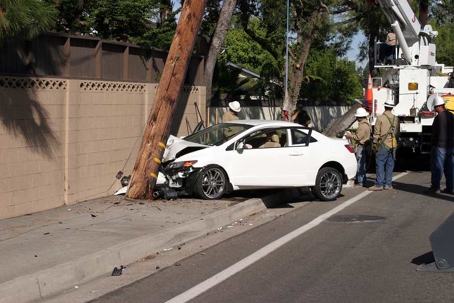I Was Involved in a Rideshare Accident. What Should I Do?
Commuters are one of the largest groups using ridesharing in order to reduce pollution and lower the number of cars on the road that leads to congestion. Rideshares also help people who do not have a car or need to leave their car in the shop get from point a to point b. Rideshares may be set up with several coworkers or between a passenger and a ride-share service like Lyft or Uber.
When you get into a car as part of a rideshare, the last thing you expect is to be in a car accident. It does happen, and it can lead to questions about what you need to do next. If you’re a pedestrian and a driver hits you, other rules apply. Here are the steps to take if you’re in an accident in a rideshare.
Seek Medical Attention
First things first, seek medical attention after you’ve been in an accident with a rideshare. You may feel fine, but remember that you have adrenaline racing through your veins. That adrenaline can help mask sensations of discomfort or pain. You might feel fine and have injuries you’re unaware of at the time. It’s best to be seen. If you are okay, great. If not, you’ll get appropriate treatment as quickly as possible. You also have proof that you saw a doctor and that the injuries were caused by that accident.
File an Accident Report
Make sure you file a report with the police if you were a pedestrian. If you were a passenger, the driver should file an accident report. If the driver doesn’t, do so on your own. Get the driver’s license plate, make/model of the car, license information, and insurance information. If the driver refuses to let you have that information, call the rideshare service for assistance.
If there were witnesses and you can get their information, do that too. It can help your case if others saw the accident or captured it on video. The more information you have regarding that collision, the better your chances of getting a fair settlement.
See What the Company Has for Auto Insurance
Check to see what auto insurance policy is in place to protect you. For example, if you book a ride with Uber through the app, the company carries commercial auto insurance with a minimum of $1 million in liability coverage for drivers and riders. It all comes down to what stage of the ride is in place.
Drivers have an app where they can have their driver’s mode turned off, turned on and accepting passengers, or a passenger is in the car. If the driver’s mode is off, the driver’s insurance will likely be the first in line for your claim. The problem is that if they were using the car for business-related purposes rather than personal use, so their personal policy may not cover a thing.
It’s unlikely there will be any coverage unless the driver has paid for a ride-sharing endorsement or commercial insurance coverage. If there is that coverage available, you can put in a claim against the driver’s insurance. The problem is that ride-share drivers rarely think about this and don’t realize their personal coverage will not cover passengers they were transporting for money. Not every state offers ride-sharing endorsements.
If the driver turned the driver mode off for any reason, you need to talk to the rideshare provider about insurance coverage. If the driver doesn’t have coverage for more than personal use, it’s time to talk to the ride-share company to see what they will offer, if anything.
When it’s noted that the driver has picked you up, Uber’s insurance kicks in. The same is true of Lyft. This primary coverage usually has a limit of $1 million per accident and is in addition to the driver’s insurance policy. You could put in a claim against the company’s insurance to cover your loss of work, medical expenses, and property damages.
What If It Was a Co-Worker’s Car?
What if your rideshare was with a fellow employee? You ride together to work and take turns driving. In this case, you’re a passenger and not paying a driver-for-hire. The co-worker’s auto insurance policy should cover your medical expenses, personal property, and lost wages.
The last thing you need when you’re recovering from injuries sustained during an accident in a rideshare is to deal with insurance hassles. If you feel you’re getting the runaround or not being treated fairly, don’t try to fight the situation without help. Carpenter & Zuckerman have a team of experienced car accident attorneys who are ready to help you. Initial consultations are free. If the attorneys at CZR take your case, they often work on a contingency fee basis and won’t charge you a penny unless they win. Call 1-888-CZR-FIRST to learn more.

